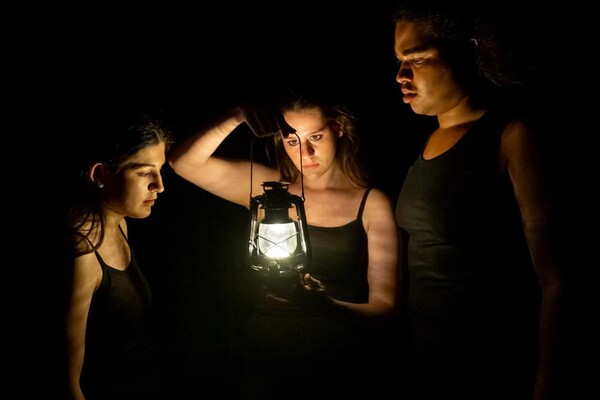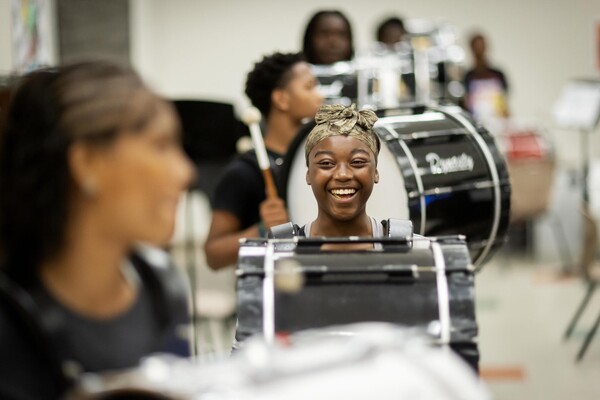
Image: Aditya Irawan/NurPhoto via AP Images
If 2012 University of Pennsylvania grad Mathew Bernstein does his job right, he thinks his position could be eliminated.
Bernstein, who majored in history and minored in French and in African studies at Penn, is an unpaid intern helping to maintain the Chris Campbell Memorial Field in Khayelitsha, South Africa, a township outside Cape Town. The soccer field was built by CTC Ten, a U.S. foundation in memory of Chris Campbell Jr., Bernstein’s fellow soccer player at Friends Central School in Wynnewood before they moved on to college. Campbell died just as he was to begin his senior season at Franklin & Marshall College.
“Chris’s dad, Chris Campbell Sr., was our varsity soccer coach at Friends,” Bernstein explains. “The Field is a memorial to Chris. He loved kids and soccer; education through sport is the way that his family chose to combine the two in his memory.
“The field was built in South Africa because Chris was planning to go there with the F&M soccer team before he died,” Bernstein says. “They found a perfect site, next to a school where soccer was already being played.”
“Fundraisers in the U.S –- one netting $20,000 in a single day -- paid for building the field, and the interns like me are there to maintain the infrastructure and be the foundation’s eyes and ears on the ground,” he said in a January interview when he was home for the holidays. “(Program) sustainability is the goal. I work for free, but CTC Ten pays my expenses.”
To that end, Bernstein said CTC Ten has partnered with the internationally recognized AMANDLA EduFootball, a South African nonprofit that provides staffing, administration and educational programming to accompany the on-the-field game playing. CTC Ten maintains the field and pays the expenses for two interns each year. Eventually, the goal is for a community member to take over the interns’ roles.
“Everyone in Khayelitsha is obsessed with soccer,” Bernstein says of the community, “so we offer field programs for toddlers –- they’re called waterbugs –- through boys and girls through men only.”
The field program has three goals: to get the residents off the streets, especially during the most crucial evening hours; to provide mentors where none previously existed; and to memorialize Campbell and keep his legacy alive.
“They learn soccer skills,” Bernstein says, “but on match day people have to sign up as a team and are expected to show up as a team.”
“Khayelitsha is a close-knit community, but it is riddled by violence,” Bernstein says. “The people are lively and vibrant, but they have big disease issues -- TB and HIV –- domestic and gang violence. It’s a rough place.”
About 200 participants, though, come out on Friday nights for the crime-prevention league, open to men 16 and older. Held from 8 p.m. to midnight, the program is designed to get these men off the streets during high-crime hours.
“The field staff work to strengthen the players to make them employable,” he adds. “The statistics support the work. It’s our most straight-forward and effective program. The goal is clear and so are the results.”
These Friday night games have an added bonus.
“The fields will be lined with people,” Bernstein says. “We’ve even added a transportation system to help people get out to the Field to play. It’s most successful. The games are intense, but we’ve had very few altercations.”
In another program, boys and girls who come for the soccer are expected to participate in the Life Skills programing provided by AMANDLA to be eligible to play. Life Skills facilitators are 19- to 30-year-olds who were unemployed and are now on stipends. Their facilitation at the Field counts as work experience, and during the day when the kids are in school the facilitators attend workshops about employability and personal development.
“They teach the kids’ training sessions because they’re members of the community who speak their language and know the kids,” Bernstein says. “An example is ‘feelings and emotions’ and the medium is story-telling to build trust.”
Calling it “a cross between a Boys and Girls Club and a school program,” Bernstein says the program is “an oasis for the kids. We call it a safe hub. I can’t tell you how unbelievably vibrant the space is. There’s a mural inspired by the kids, and the kids themselves are the subjects.”
During the kids’ matches, the program uses a “fair-play” football system to track behavioral improvement”, Bernstein explains. “We employ an alternative scoring system that rewards good behavior and reproaches bad behavior tied in with regular scoring.
AMANDLA has been honored with the 2012 Beyond Sport Award for its conflict-resolution efforts and runs programs all over South Africa. Eight to 10 staffers work in Khayelitsha.
Bernstein says the model is to come into a community, get the program run by the community for the community, then replicate it elsewhere.
Bernstein became a CTC Ten intern because of his connection to the Campbells but has had the opportunity to develop NGO and business-start-up experience.
“I’m there to support the development, strategies and implementation of the programs with the goal of working myself out of a job.
“I’ve grown, it’s been tons of fun. I’ve worked hard, but it’s been a spectacular experience.”
Current Penn juniors interested in an internship with CTC Ten when they graduate can learn more about the program at www.ctcten.org or by contacting Bernstein at matt@ctcten.org.
Julie McWilliams

Image: Aditya Irawan/NurPhoto via AP Images

nocred

Image: Michael Levine

A West Philadelphia High School student practices the drum as part of a July summer program in partnership with the Netter Center for Community Partnerships and nonprofit Musicopia.
nocred